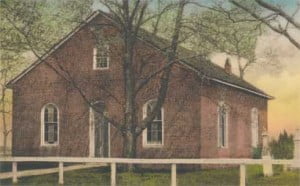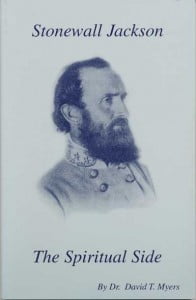This Day in Presbyterian History:
How to Listen to a Sermon
Finding no persons, places, or things in Presbyterian history on October 16, the companion catechism to our focus on October 12—about how your preacher is to proclaim sound doctrine—is Larger Catechism No. 160. It deals with how you are to listen to a sermon. It says, “It is required of those that hear the word preached, that they attend upon it with diligence, preparation, and prayer; examine what they hear by the Scriptures; receive the truth with faith, love, meekness, and readiness of mind, as the word of God: meditate, and confer of it; hide it in their hearts, and bring forth the fruit of it in their lives.”
Presupposed in this answer is that we “attend” unto the preached word with our attendance in the services of the Lord’s Day. Our Lord was the Son of God, and yet it is said in Luke 4:16 that his “custom” or habit was to be in His place of worship on the sabbath day. We are to not to “forsake or neglect to assemble together [as believers].” (Amplified of Hebrews 10:25)
As we attend to it, we are to do it “with diligence, preparation, and prayer.” In other words, simply warming a pew or chair by our posture does not fulfill our duty with respect to the preached Word. The church member, and even the visitor, should not be passive, but active to the sermon. You would not be persistently late to show up for your work or school, so don’t come late to the worship of God, and disrupt the other worshipers. Preparation to worship the Lord is necessary also. Take care of your business or assignments so that you won’t be reviewing them during the sermon or planning them.
Are you prepared to pray the prayer of the Psalmist David “Open my eyes, that I may behold Wonderful things from Your law.” (Psalm 119:18 NASB)
Should the worshiper accept everything the preacher says? Certainly not! Our confessional fathers urged us to be like the Bereans of old (See Acts 17:11) and “examine what they hear by the scriptures.” You should test what you hear by the Bible.
But having said that, the catechism speaks of “receiving the truth with faith, love, meekness,and readiness of mind, as the word of God.” In other words, it is important to have a receptive heart and mind, not a continual critical heart and mouth with respect to the preaching of the Word. This will be facilitated if we learn how to “meditate” and “confer of it,” like what does it mean, and what does it mean to me. A discussion in the family as to what was the application of it to each members of the family. Some churches encourage Bible studies on sermons heard the previous week, which is profitable indeed.
Hiding it in our life and bringing forth the fruit of it in those lives, are two neglected exercises in modern-day Christians. Yet both are biblical. David prayed in Psalm 119:11 “Your word have I treasured in my heart, that I may not sin against You.” James in his book, chapter 1, verse 22 wrote about “proving yourselves doers of the word, and not merely hearers who delude themselves.” In other words, show that you are a Christian by doing what you have heard in church.
All this is required — it is your duty — with respect to the preaching Word of God.
Words to live by: Happy is the church whose minister preaches sound doctrine in the manner of Larger Catechism 157 and whose members listen to the preached word in the manner of Larger Catechism 160. In fact, write this answer on the flyleaf of your Bibles, and review your reception of the Word in comparison to it. If you have a good memory, commit the answer to memory. God’s Word is too important, and the challenges of the world, the flesh, and the devil are so serious, that the Church cannot afford to have lukewarm Christians.
Through the Scriptures: Matthew 5 – 7
Through the Standards: Proof texts for the Church
Ephesians 4:11, 12
“And His gifts were [varied: He Himself appointed and gave men to us] some to be apostles (special messengers,) some prophets (inspired messengers), some evangelists (preachers of the Gospel, traveling missionaries), some pastors (shepherds of His flock) and teachers. His intention was the perfecting and the full equipping of the saints (His consecrated people), [that they should do] the work of ministering toward building up Christ’s body (the church).” (Amplified)Matthew 16:18
“And I (Jesus) tell you, you are Peter [Greek: Petros — a large piece of rock], and on this rock [Greek, petra — huge rock like Gibraltar] I will build My church, and the gates of Hades (the powers of the infernal region) shall not overpower it [or be strong to its detriment or hold out against it]. (Amplified)




